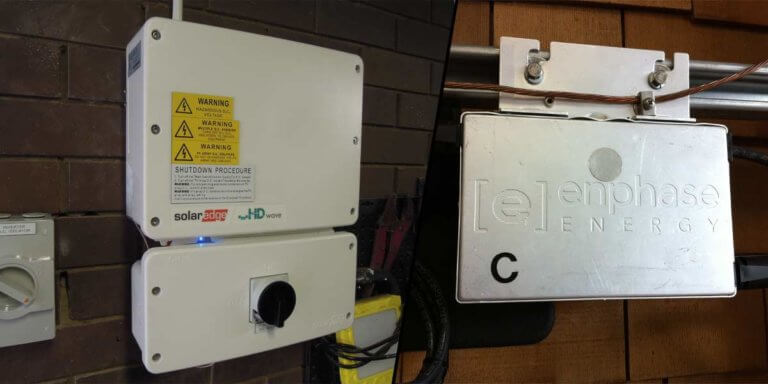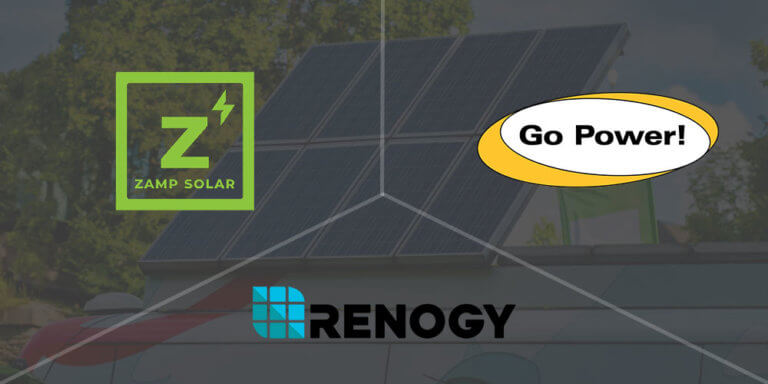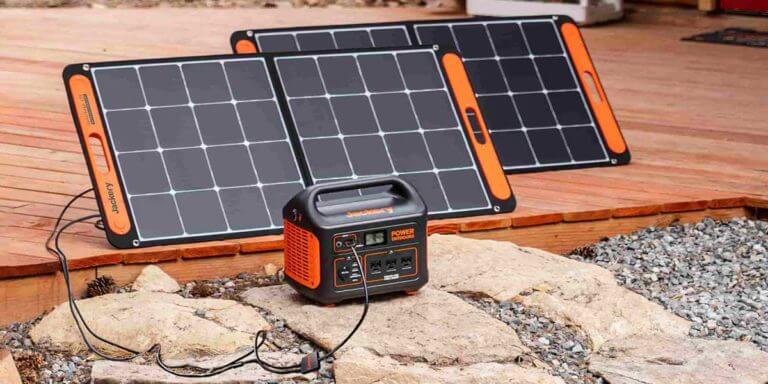Solar Panels Vs Generators | Which One Is Right For You?
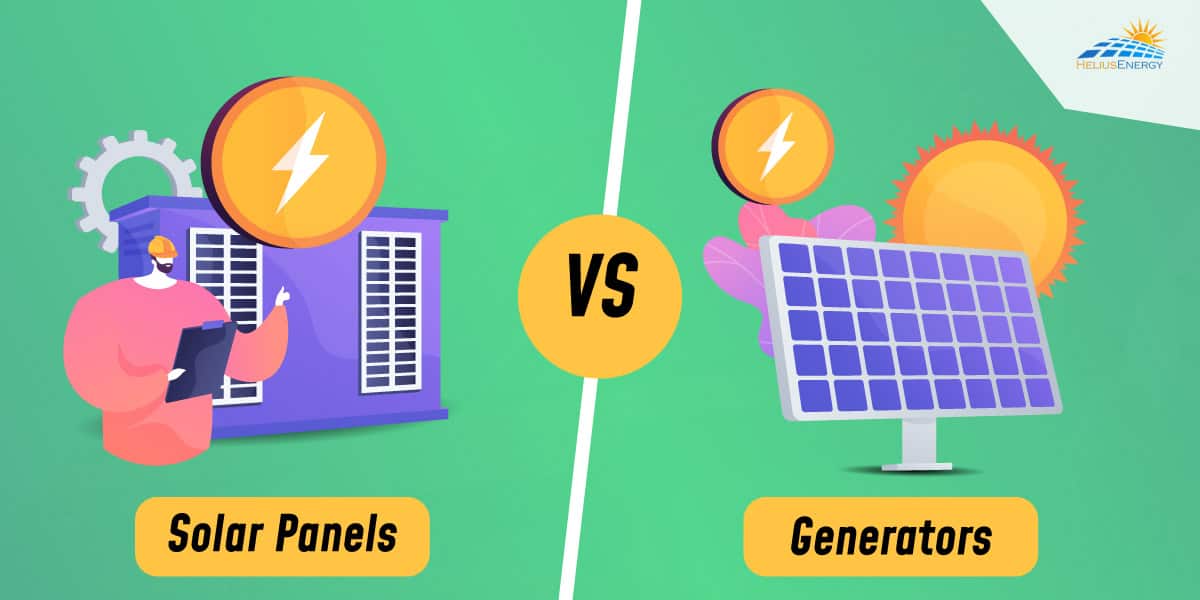
Power cuts are very common, and we often rely on power backups to provide us with electricity during blackouts. While blackouts may not be very common now, there are several states and regions where power cuts can be a problem.
The debate of solar panels vs generators isn’t something very new, but solar panels are growing in popularity because of several factors. While generators are used by many to provide quick and reliable power, solar-powered battery backup is gaining popularity.
Suppose you are confused about choosing between solar power as a backup generator or using a simple generator. In that case, this article will dive down into the solar panel vs generator debate so that you can decide which one suits you.
What Is A Solar Battery Backup?
Solar battery systems save extra energy from a power source, such as your solar panels or the power grid, for later use.
When you combine energy storage with a solar battery, the battery will save any excess energy generated by your solar panels for use during low solar output periods, such as at night.
Battery system devices can offer capacities ranging from 5 to 20 kWh, depending on your home’s energy requirements.
Grid-tied solar PV systems will be turned off during a power loss, leaving you and your neighbors who are connected directly to the grid without electricity. When you combine solar panels and a solar battery, your power system will disconnect from the grid, but your solar battery will immediately begin powering your home.
You can also configure your battery backup system to power only your critical energy loads or the entire house.
Pros And Cons Of Solar Battery Backup
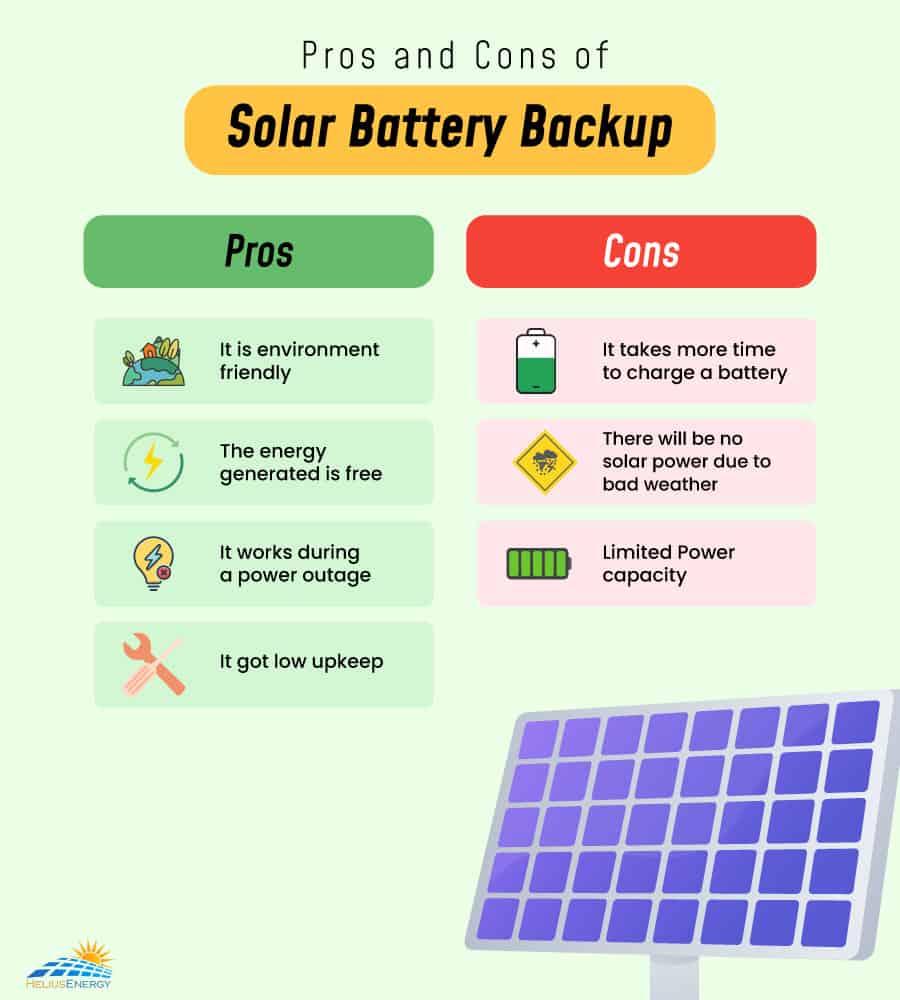
Pros Of Solar Battery Backup
- Clean energy: This is, without a doubt, the most crucial advantage of solar panels. They make no noise, emit no gases, and are environmentally beneficial.
- Solar panels produce no electricity. There is no need to purchase fuel to keep solar panels working. The energy of the sun is completely free. So, after you’ve purchased the equipment, you won’t have to pay a dime.
- There is no additional noise/quiet operation.
- When paired with solar, it runs on renewable energy.
- Increases your daily solar consumption 24 hours a day, seven days a week
- It is eligible for MA state and federal tax credits.
- Exceptionally low upkeep
- During a power outage, everything runs smoothly.
Cons Of Solar Battery Backup
- One of the most significant disadvantages of solar is that it takes far longer to charge your batteries than a generator. So, solar won’t always be enough if you’re constantly operating high-energy-consumption equipment like heating and air conditioning. The amount of electricity generated by a solar system is limited by the number and size of panels that may be installed.
- No power due to bad weather.
- The initial investment can be high for purchasing equipment
- Power capacity is limited when it is grid-connected.
What Is A Generator?
Most homeowners are already aware of the backup power equipment known as portable or standby generators. The power produced by backup generators is produced through the combustion of fossil fuels like propane, natural gas, or even diesel.
They are situated outside the house and may have sensors to operate automatically when a power outage is detected.
Backup generators are less expensive to buy, but they have some small monthly expenditures because they frequently require weekly self-tests and any fuel you spend while running during an outage. The lifespan of a well-kept standby generator typically ranges from 10,000 to 30,000 hours (or up to 3.5 years if run continuously).
Diesel generators, like all technology, have advantages and cons. For your own clientele, it’s crucial that they comprehend the relative benefits and drawbacks of generator technology before implementing this backup solution.
Pros And Cons Of Generator
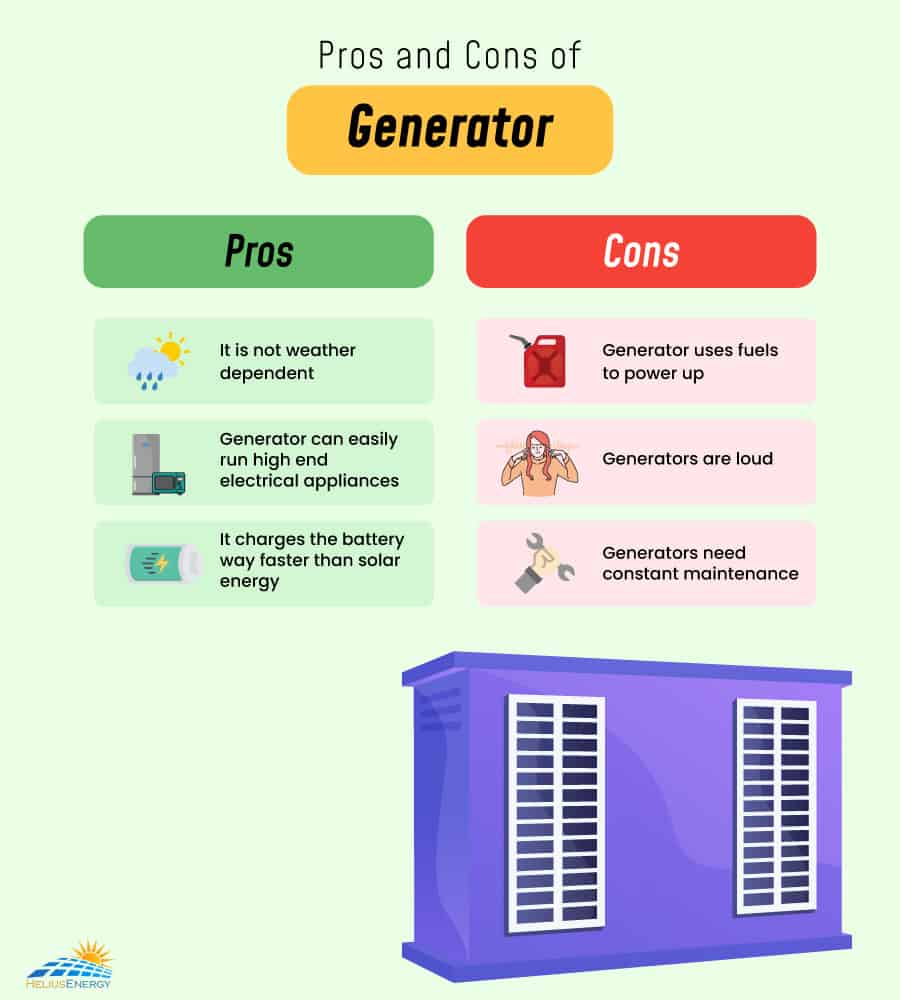
Pros Of Generator
- Connect a 240-volt battery charger to the generator’s AC output if you need to charge your battery quickly. This charges the battery significantly faster than solar while also managing the charge.
- A generator can power appliances without first charging the battery. They outperform solar when used with power-hungry items such as your air conditioner and coffee maker.
- The most significant advantage of generators over solar is that they are not weather dependent. A generator offers dependable power as long as it is properly maintained.
Cons Of Generator
- Generators use fuel. This implies that in addition to the ongoing cost of running a generator, you must also ensure that you have enough fuel.
- Generators weigh anything from 13 to 30 kg before fuel, making them heavier than solar panels. They’re also bigger and take up more space in your caravan.
- Generators are noisy and need maintenance
Solar Panels Vs Generator | Which Is More Cost-Effective
Calculate the Cost Of Getting A Solar Battery Or Generator
A standby generator costs between $3,000 and $5,000. This is enough to power a normal home. In comparison, a home backup battery can be purchased for as little as $6,000.00. (aside from installation costs). In most circumstances, many batteries will be required to power your home.
Overall, installing a battery backup system will run you between $10,000 and $20,000. If your energy requirements surpass your neighbor’s, you may want extra batteries or a larger generator. However, installation charges will be several thousand dollars higher than the initial price.
Don’t be put off by the initial cost. For qualified candidates, financing schemes are available, and battery backup systems provide long-term savings that generators do not.
When you buy a generator, you must also buy fuel, carry out regular maintenance, replace the generator once it has reached the end of its usage lifespan, and so on.
On the other hand, battery backup systems work in tandem with solar energy systems to generate a renewable energy source. This can result in a long-term reduction in your electric bill of thousands of dollars.
Backup Power Options And Size Power Load
Consider what you’ll need to power your home in case the grid goes down when selecting backup power solutions. If all you want to do during an outage is keep the lights on, a battery will work just fine.
When choosing a battery for backup power, most homeowners typically find comfort in the knowledge that essential loads (such as lights, outlets, and small appliances) will require electricity in the event of a power loss.
Not every battery has the capacity to generate enough electricity to run appliances and machinery that consume a lot of energy. Consider where you utilize a good pump, a sump pump, or another high-power device.
In that situation, installing a battery backup system is advised (the Pika Energy Harbor Battery, for instance, performs incredibly well as backup power).
Fuel Supply For Power Backup
The source of energy is an important issue for home backup power. Consider this carefully when assessing your options. Diesel, natural gas, or liquid propane are the most common fuels for generators. Fortunately, if you have enough gasoline to power the generator, it will continue to run.
Even some generators can continue to run by connecting to a natural gas pipe. If you don’t have access to a natural gas connection, always have extra fuel on hand for your generator.
A home battery backup system, in contrast, often runs on electricity. It can be charged straight from the grid or through a rooftop solar panel. A layer of protection can be added to ease your mind of worry if you have a solar cum storage system (as off-grid backup power).
Solar Panels Vs Generator | Which One Is Right For You?
What works for you and what fits you better depends on your personal preferences and, obviously, the cost, which we discussed above.
Purchase A Standby Backup Generator If
Suppose you don’t mind the noise and upkeep needed. In that case, you simply need a system that can provide emergency power, and if you don’t plan to install solar panels in the future, a standby backup generator is a perfect solution.
A standby generator might be simple to install if your home already has a natural gas line.
Purchase A Solar battery Backup If
Customers looking for a backup system compatible with a current or future solar energy system can consider solar battery backup as a great choice.
A battery system is ideal for individuals who desire a quiet, low-maintenance, dependable, and environmentally responsible alternative.
If you want to lower peak electricity prices while simultaneously ensuring that your home’s lights are powered and operational during a grid outage, think about investing in a battery backup system.
Final Thoughts
When weighing solar batteries and generators, it can be challenging to decide which option is best for your home’s needs. Both of these are great for supplying electricity to run equipment for household or commercial use.
Do you require emergency electricity but don’t have any immediate plans to install solar panels? Then a backup generator is an ideal option for you. Do you desire a permanent source of electricity for your house, irrespective of blackouts? Would you like to pay less during the peak hours for electricity? Choose a solar-powered battery.
Make the finest choice possible by taking your situation into account. Consider the advantages and disadvantages. Select the solution that best suits your circumstances. I hope this article has helped you to draw a conclusion.

